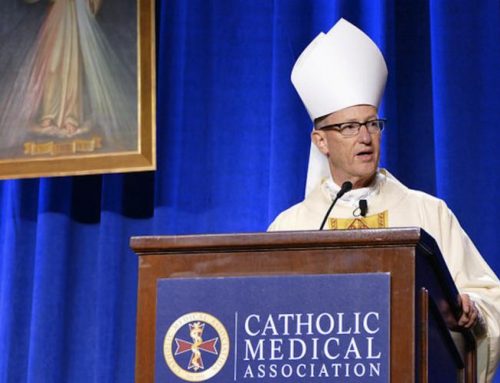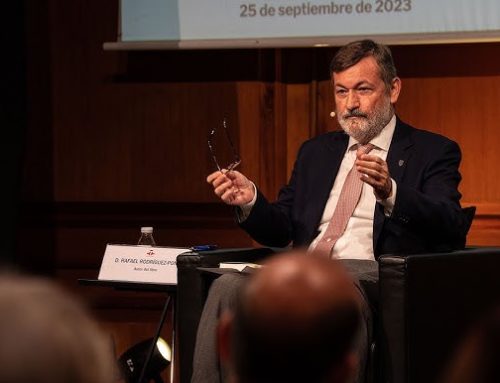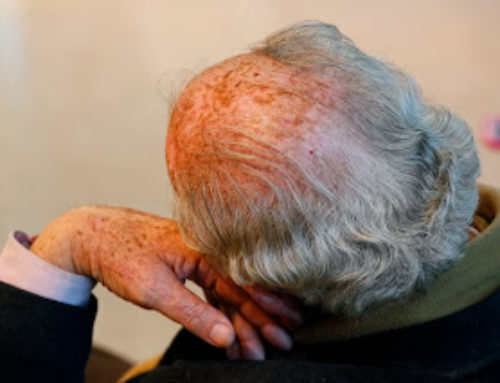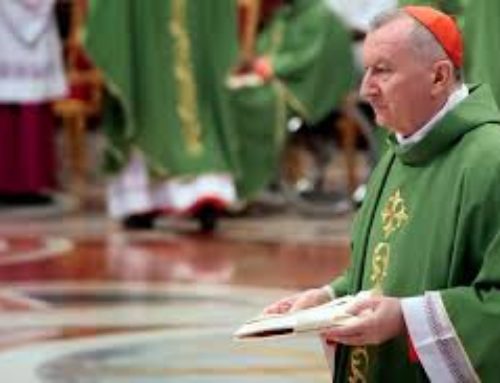By Anne Lastman
We live in a painful moment in society. Indeed, a time of loneliness, fear, uncertainty. There is a passing of the old and the grief associated with this passing because of the unknown of the future. Old familiars are disappearing and new certainties still not in place. There is a sense of dis equilibrium.
We speak about religion, faith, communion, however, some beliefs like abortion and euthanasia, transgender, have slowly insinuated themselves into human life and acceptance.
Our disenfranchised grief at the passing of known ways and securities calls for a healing of this wound and in the healing of this societal grief, then we will heal humanity.
The greatest healing of grief can come from the genuine love and hearing ear of someone who cares.
Grief in contemporary society is the result of too busy an ear to hear the cry of pain. When we hear that cry, and stop to listen the pain is eased.
One of the things which the late Holy Father St John Paul II will be remembered for is his insistence of the dignity of the human person whose rights are universal and unchanging. According to him and also the Vatican II document, Gaudium et Spes, a human being is a human being even in his/her darkness, and with this vision of the human, it’s possible to minister to the most wounded and broken in our society, an example of which is those mothers who have aborted their child. Those who acquiesced to euthanasia, those whose confusion leads to change of human design, and each have regretted that decision.
The work of grief counselling is a work of side by side accompaniment through at times deep mire but with an assurance that there is an exit which can be beautiful.
An example of this type of accompaniment is the work of accompanying wounded women who choose to abort their child and then their resulting pain. This particular work requires helping this mother (yes, she is always a mother even when child aborted or miscarried) to develop a relationship between herself and her baby. Help her reclaim that child as her own, openly grieve for her baby, create a history and memorial for her child and then relinquish the child lovingly into the arms of the heavenly Father and the baby’s creator, having ensured that her baby has not passed by unnoticed and unknown. This is the work of a post abortion grief counsellor.
To be present and to mourn with a mother who has aborted her child and to relive with her the dying of her child is to be intimately and consummately near. To be with her is to help her reclaim the dignity which she believed she had lost and could not ever deserve.
Society needs to make this grief understood and then as a whole to mourn for the loss of these children even when their own parents cannot mourn for them. We need to mourn because in our mourning we speak a language of love. In the mourning we say to them something very important. We say “You have great dignity and are worthy of great honour.”
We who are called to this special mourning and work are called because sadly at this moment society is spiritually blind to the loss and does not know how to mourn for the millions of its children lost in such a violent manner and the loss to such a degree that this civilisation has suffered a dulling of conscience. This is a society which no longer sees children as a blessing as described in the Psalms as a “quiver full” but as disposable, manufacturable, commodity and disposed of as a “right” sanctioned by law.
We need to mourn for the loss of the aborted babies because in the mourning we speak a language which belongs to the substance of the supernatural life of the human person. Mourning is a sign of love, of emotion, of eternity.
There is a need to mourn, to weep; we need to be able to express grief because it is the most profound of our emotions. It touches on the moral law written into the human heart (Jer. 31:31:33 & Romans 11) and which can be known by our reason.
To conceive a child is to become pregnant with His Living Word. His “Amen.” “His divine breath” and in the creation of each new child God encounters and keeps encountering humanity. Hence why abortion is so horrendous. It is a rejection of this encounter with God and a rejection of His Love whispered into the depths of the silent, mysterious womb. All created beings including the aborted ones have been thought about, loved and created in the likeness of the originating Word……. JESUS.
Jesus is the pattern; the prototype of every human conception and it is a knowledge which is written into the womb of woman. It’s this innate knowledge which leads to the grieving and in this sorrow, the redeeming.
The malignant syndromes which arise in the psychology of the woman do so because the womb weeps for the terrorism inflicted upon it and tears attest to the pain. In the womb where “life” has its genesis, violent crushing death has occurred. The Word spoken and written into the womb is “LIFE” and God speaks this word. The word spoken by abortion is “death” spoken by Moloch the prince of darkness.
The past is never gone, but remains hidden within the memory. For someone who experiences a great loss, especially where there is guilt, then regret may be the best and most merciful outcome possible. As I counsel and talk to men and women who have experienced intentional abortion, regret is a memory tinged with both love and sorrow. It’s a memory which is important to retain and not suppress. Both because it’s a necessary memorial and because suppression results in the malignant syndromes. To remember means that the infant/s who was meant not to exist (but did not) is always remembered.
This grief is neither useless suffering nor unnecessary, but it’s indeed the most important suffering endured in our age. This type of regret, and grief brings before the eyes of the world the reality of what abortion really does and can re-focus attention to the very thing that was destroyed. Human life and its sanctity and dignity afforded to it. The Talmud speaks the words “to save one life is to save the world entire” That is the value of the human being. A world. A creature deserving of great Mercy.
Mercy is empathy, sympathy, compassion, forgiveness, and in its totality it’s a divine, mysterious response that clearly shows the intrinsic worth and high estimation which God has for the human person. Mercy is love shown to those who haven’t loved, who may not be loved and who have rejected love. Those who have lost their sense of their own dignity. Mercy is loving those who have not been or known divine kind of love.
The restoration of an aborted infant to the human family is not only an act of Mercy, (love) which can heal the parents and those who participated in the death, but can also heal society whose ethos demanded and embraced child sacrifice. Restoration through grief and a permanent memorial speak of love of the eternal kind.
How interesting that the Hebrew word for compassion is Rachman and the Hebrew word for “womb” is Rechman both have the same root. Perhaps a “compassionate womb” or even that the womb is the home of all compassion. How devastating that the womb has lost or is losing “compassion” and instead is now a place of horror, desecration and pain.
Post abortion grief is a legitimate type of grief which is experienced primarily because the aborted baby belongs to the human family with all its sins and imperfections. It’s a penitent grief which is profound and is experienced by the spirit as it travails to achieve a change of heart. Yet within this type of suffering is hidden the key to the forgiveness of Jesus Christ. It’s at this level where He forgives and heals.
The origin of suffering is not divine. however, the response to it is, and because this is so, the woman (who has aborted) who turns towards God in an attitude of humility can be forgiven because through the suffering of Jesus Christ the sin of abortion is forgiven and then begins the transformation and her re integration within the divine life of God.
A particular grace is evident when the sinner (once repentant and forgiven) is met. This person is now marked with a sign of grace and protection (Gen.4:15-16) and we know that forgiveness and those forgiven are called to mediate for an on behalf of those who still remain in darkness (Lk 22:32). The forgiveness and conversion of the post-abortive woman is a visible sign of Mercy. The woman forgiven and shown Mercy be a beacon for the one who hasn’t yet found her way to the Mercy seat of God.
“Anne” “Jenny” “Heather” “Mellie” (and thousands more) Jesus whispers, and she knows that she has heard his voice. She is the woman who has experienced the healing and forgiving power of God, in and through Jesus Christ. She has experienced Mercy. He who is the definitive “Rapha-el” has through Mercy transformed her post abortion suffering and grief into eternal love.
The memory of the abortion remains salvific because it deepens the understanding of the individual’s personal history, action and salvation and be able to see clearly what Jesus meant by the words “Blessed are those who mourn” (Mt. 5:4) because through this mourning it’s possible to see that it can become a blessing because Mercy has been experienced and seen.
Without the Mercy of God abortion mourning continues like a dull ache in the heart. An ache which has no ending and it’s possible to see a marked difference between those who seek the Lord’s forgiveness and receive it and those who do not wish to know about God or His Mercy. Both require psychological care and both require spiritual care (even if it is the counsellor or others who pray for her) but unless God is invited into the life of the person grieving over an abortion there will be little healing. Temporary ease of pain? Maybe. But healing no.
Because the mind is so profoundly disturbed by suffering it can be assumed that suffering for its own sake is not good but evil. But suffering which can be permitted for conversion or the rebuilding of the sufferer is a call of Divine Mercy in the depths of the human heart.
It’s interesting to note that the suffering of humanity is a mystery and hidden within this mystery is redemption. Deep within the mysterious human heart, God works to recreate the sinner. A call to the soul in Diaspora. Diaspora.
The particular suffering of a soul in Diaspora is the balancing if not the reversal of sin. The human person is inclined towards self and filled with pride. This suffering lets the human acknowledge his/her part in the genesis of suffering and begins in a certain sense to withdraw permission granted to the self to war against the self. This is important because a post abortive woman who regrets her abortion sets out to war against herself. And what stops this war is self-love and self-mercy.
The enormity of suffering which is attached to an abortion cannot ever be truly reflected because society has placed a veil of denial over this sin. The veil of unreality (it’s not a baby it’s tissue), and this veil preserves society from the knowledge of what is being done and because of this veil, abortion has found place in the normal of life.
Post abortion grief is neither empty nor wasted or unnecessary but is the most important suffering and mourning of our age (50 million abortions pa). And this age has a need to corporately mourn for the hardness of heart which has overcome us. It has a need for abundant Mercy.
Both individual and societal mourning is good because it brings with it reparation and healing and healing of “Eve” “Adam” and the nations. Unless “Eve” and the nations mourn they remain outside of God’s mercy because “sin” (abortion) is not admitted, and confessed.
It is in the journey to healing that the meaning will be found and the likeness of man to the Divine initiative (his origins) will be discovered.
Indeed, those who mourn are invited to participate in an Immanuel type of mercy. Therefore, those who mourn for infants who die in the womb through abortion and for the sin of their parents and society can be mediators of Mercy.
Mercy and forgiveness are not human initiatives but the work of the Holy Spirit permitted by God through the intercession of Jesus the Beloved Son who came to be in solidarity with human beings even to the point of sharing in the human being’s suffering.
Regret whilst good cannot govern mourning because to remain at regret alone is the second last step to healing and Mercy. It’s the understanding that from this immense evil (abortion) a good (conversion) was achieved and therefore Jesus has interceded and changed this horror into a work of Mercy.
The earth is the womb of creation. Church is the womb of heaven. Mary is the womb of Jesus and “woman” is the womb of the future.
Mercy and Forgiveness does not mean making excuses but it does mean beginning a journey which incorporates the hurt but it also means healing of the infection surrounding the wound. Indeed, cleaning the wound. The wound needs to be clean before it can begin to heal. Forgiveness means standing on that cross with arms outstretched and looking towards God the Father and saying “Father I have sinned against heaven and you
Lk 15:” Forgiveness means climbing on the cross with all the pain and saying “father I am so sorry…” and receiving Mercy.
This beautiful Christian poem so clearly speaks to us.
THE MASTERS HAND.
Author: Myra Brooks Welch
T’was battered, scarred, and the auctioneer
Thought it scarcely worth the while
To waste his time on the old violin,
But he held it up with a smile.
“What am I bid, good people,” he cried,
“Who’ll start the bidding for me?
One dollar? …Now do I hear two?
Two dollars…now who makes it three?”
Three dollars once…three dollars twice,
Going for three….” But no!
From the room far back a gray bearded man
Came forward and picked up the bow.
Then wiping the dust from the old violin
And tightening up the strings
He played a melody pure and sweet
As sweet as the angels sing.
The music ceased, and the auctioneer
With a voice that was quiet and low
Said, “What now am I bid for the old violin?”
As he held it aloft with its bow.
“One thousand?” said he. “Two thousand?
And now two thousand and who makes it three?
Three thousand once, three thousand twice….
And going and gone” said he.
The people cheered, but some of them cried,
“We don’t quite understand…
What changed its worth?” Swift came the reply,
“The touch of the Master’s hand.”
And many a man with life out of tune,
All battered and torn with sin
Is auctioned cheap to a thoughtless crowd
Much like the old violin.
A mess of pottage, a glass of wine,
A game, a he travels on, He’s going once, he is going twice,
He is going and almost gone.
But the master comes and the foolish crowd
Can never quite understand
The worth of a soul, the change that was wrought
By the touch of the Master’s hand.







